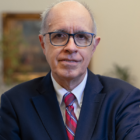Communities take the field

All the data regarding sports activities in Italy highlight the persistent territorial disparities in social issues across the country. Despite sport being included in the Italian Constitution a year ago, sport remains inaccessible to many in Italy.
This lack of accessibility reflects broader inequalities, such as the North-South divide, urban-rural disparities, gender inequalities, and the exclusion of people with disabilities. A significant generational gap is also emerging. Italy ranks highest in the world for sedentary lifestyles among children aged 11 to 15 and fourth among adults. Sports dropout, especially prevalent among Generation Z, accelerates with age: while two-thirds of lower secondary school students participate in sports, only half of upper secondary students remain active, with 35% reporting they have quit and 9% never having participated. The main causes are performance anxiety, family influence, high costs, and limited access to facilities.
In response to the publication of the Index, many have called for greater state involvement, but to really change the situation we must consider another key player: the Third Sector. Across Italy, 120,000 non-profit organisations, supported by nearly 900,000 volunteers, are actively expanding sports participation.
Recognising this, ACRI and Assifero launched the campaign #unaltrapartita. Comunità in campo (#AnotherGame. Communities Take the Field) in the frame of the European Day of Foundations and Donors and more than 150 projects answered our call, participating in the campaign by organising events, shooting videos and organising conferences or games.
It was a record number that showed how much communities in our country are trying to make sport accessible, to give people a space to exercise or just be together. These projects, supported by foundations, target young people, the elderly, people with disabilities, migrants and individuals in rural or impoverished areas, with the shared goal of offering regular access to sports.
At ACRI , we collected the powerful stories of these projects taking place from the North to the Islands. We got to know a group of people in Bologna who started a skate-park because some kids asked them to and now organise lessons for tens of kids of the area. We learned about a team of psychologists and nutritionists who collaborated with a female basketball team in Florence to create a space where the athletes could study, talk about their problems and share their experiences of teenagers. In Treviso we had an exhibition by a photographer with autism who took pictures of athletes with disabilities and in Bari the staff of the foundations played a football match with visually impaired persons. In Rome we had our event in the nearby neighbourhood of Pietralata, where a group of people, almost a decade ago, decided to create a football team of refugees and migrants. Starting from there, they created a social space for everyone who lives in the area, from the players to the young people who go there to study and do homework together. It started as a sport project but grew by following the values of inclusion, solidarity and openness.
The last week of September we celebrated these values together with a large community that takes the field every day to make sports accessible and inclusive, because sport is not just about the Olympics and great talents. #unaltrapartita aims to tell the story of the world of sports, which is mainly composed of small elements that nonetheless make a difference because they train every day to win important matches – those against educational poverty, hardship, isolation, and social exclusion.
That is why ACRI, together with Assifero, decided to make sport the main topic of our campaign and to highlight the numbers of low participation. When we have kids afraid of doing sport or families unable to bring them to do exercise we are not just losing a battle with health, we are making our communities more fragile and leaving the disadvantaged behind.
Foundations and philanthropic organisations in Italy and in Europe play a distinctive role in contributing to the construction of a fair future. They do this by paying attention to the needs of the territories, placing communities and the most vulnerable individuals at the centre, and giving them a voice. We see sport as a powerful tool for social cohesion and improving individual well-being and we stand with those organisations and people who work to guarantee it for everyone.
In sports, as in society, this collective commitment can help combat inequality, offering everyone -regardless of physical, cognitive, social, or economic background – the chance to compete on equal footing and reach their full potential.
For a week we took the field with a public campaign – but we will keep doing it every day of the year.
Authors

